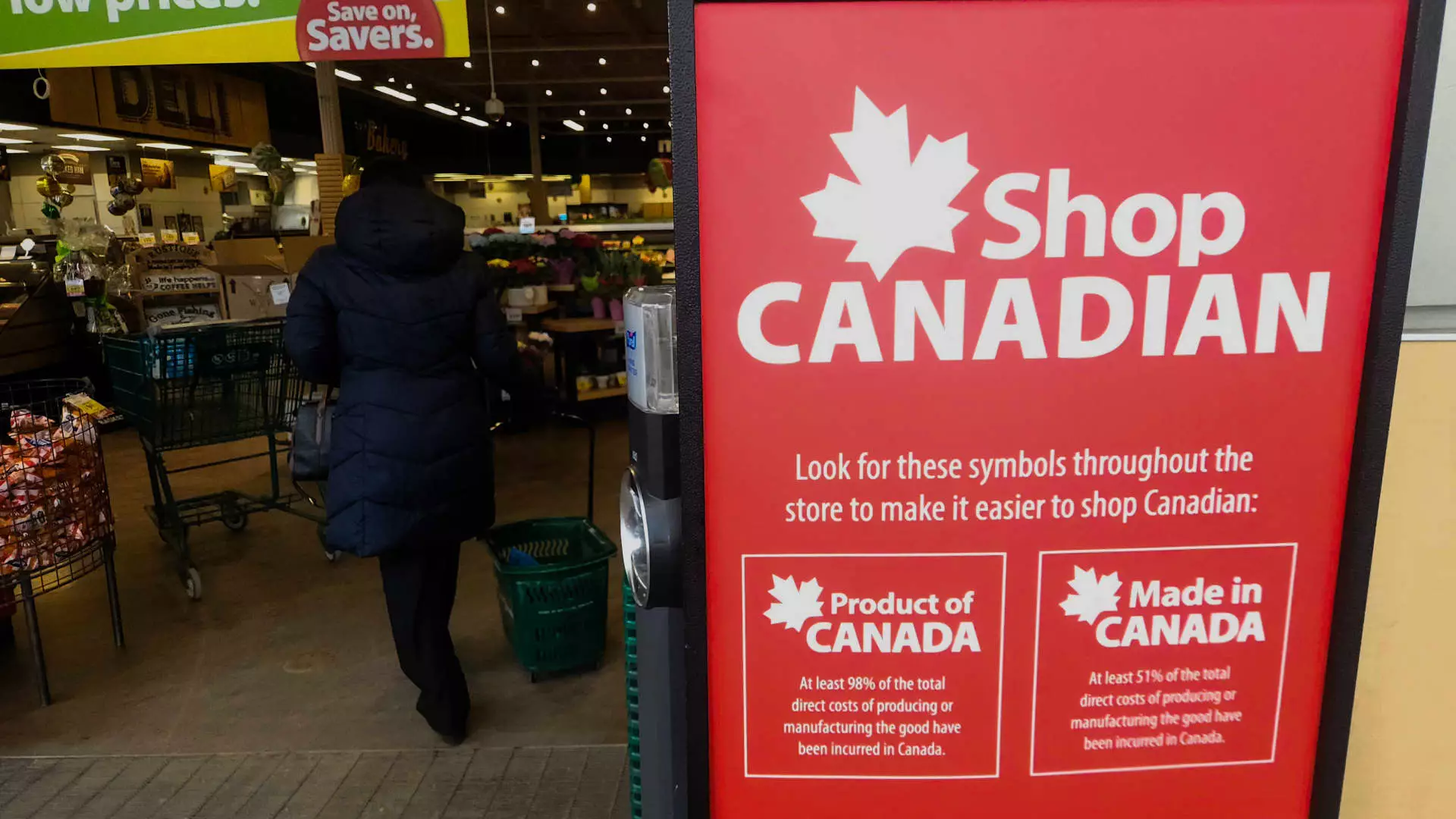In the tumultuous landscape of modern economics, few issues evoke as visceral a response as tariffs. When President Trump, during his tumultuous tenure, announced sweeping tariffs against close allies like Canada, he ignited a firestorm of resentment and economic instability that still lingers today. The inclination to bolster domestic manufacturing through such heavy-handed methods may sound appealing in theory; however, the reality is far more complex and potentially damaging to the fabric of international commerce. A staggering $762.1 billion worth of goods exchanged between the U.S. and Canada in 2024 is more than just numbers; it represents lives, businesses, and deep-rooted partnerships that are now fraying at the seams.
Shifting Dynamics and Eroding Trust
For many small businesses across the border, the impacts of these tariffs resonate on a deeply personal level. In a recent survey by the Canadian Federation of Independent Business (CFIB), nearly half of its 100,000 business members indicated a direct involvement in importing or exporting with the U.S. This tight-knit economic interdependency is a testament to the strength of Canadian-American collaborations; however, it is also a double-edged sword. Trust, once the cornerstone of this relationship, is now under threat. More than half of surveyed businesses expressed significant doubt regarding the reliability of the U.S. as a trade partner.
The emotional fallout is just as concerning. Corinne Pohlmann, an advocate for Canadian small enterprises, encapsulated the sentiment when she expressed that many Canadians felt “betrayed.” The mere introduction of tariffs has not only escalated costs but has also prompted businesses to reconsider their allegiances and partnerships. Entrepreneurs find themselves grappling with the prospect of renegotiating contracts and enduring the consequential strains on their long-standing relationships with American counterparts, a bitter pill to swallow for many who have invested their time and resources into maintaining these ties.
Cultural Reactions in Canada
As the tariffs continue to ripple across Canada, innovative and distinctly Canadian reactions are emerging. Local businesses have recently pivoted to emphasize national pride, evidenced by Balzac’s Coffee Roasters renaming their Americano drink to the more patriotically spirited “Canadiano.” This small yet symbolic act showcases an attempt to reclaim some control and express resilience in the face of external pressures. Similarly, supermarket chains like Your Independent Grocers have launched initiatives to highlight domestic products while signaling which items are affected by tariffs with a simple “T” logo.
These acts reflect not only defiance but also an evolving cultural identity in the wake of trade tensions. It’s a movement toward fostering local industries, and a stand that reinforces the idea that Canadian products are not merely alternatives but essential components of the national economy. As such, the tariffs have inadvertently catalyzed a resurgence in local pride and consumerism that might redefine the marketplace in ways previously unimagined.
The Broader Implications of Tariffs
The implications of these tariffs extend far beyond immediate economic repercussions; they threaten to alter geopolitical landscapes. Tariffs are oftentimes viewed as tools of “hard power,” and this strain runs the risk of undermining the U.S.’s long-standing influence across the globe. This influence is not solely based on military or economic measures but relies heavily on soft power—relationships built on trust, respect, and mutual benefit.
Former Secretary of State Antony Blinken’s concerns about diminishing U.S. soft power serve as a clarion call for understanding the long-term ramifications of current policies. While economic downturns and adjustments can be temporary, the loss of global influence is a much graver concern that might have lasting effects, especially as rival nations like China seek to expand their own power on the world stage.
Repairing the Damage
Looking ahead, the scars of the current trade crisis may affect future negotiations and alliances. Even potential easing of tariffs may not suffice to restore the fractured trust that has taken years to build. That transformation hinges not only on economic policies but also on a broader acknowledgment of the emotional and relational aspects involved in international trade.
The overarching question remains: can the U.S. rebuild its tarnished reputation as a reliable partner? For Canadian businesses and many stakeholders, there is a palpable hesitance to jump back into previously fruitful partnerships. Small business owners, once eager to cross the border in search of opportunity, now find themselves navigating a landscape marked by uncertainty. As both nations grapple with the fallout, they must confront the reality that the economic relationship they once took for granted may never entirely recover.
In essence, tariffs embody more than mere financial burdens; they reflect a fundamental misunderstanding of the international economic ecosystem and the very human lives that are impacted by such decisions.

Leave a Reply